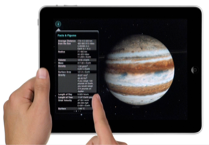Community Embraces New Word Game at Mid-Year Play Day This past Sunday, families at Takoma Park’s Seventh Annual Mid-Year Play Day had the opportunity to experience OtherWordly for the first time. Our educational language game drew curious children and parents to our table throughout the afternoon. Words in Space Several children gathered around our iPads […]
Read moreTag: ebooks
 Patrons at 150 local libraries have a new option to borrow eBooks on their computers or iPad. Yesterday, Internet Archive launched a cooperative of libraries who are pooling resources to make eBooks available to their patrons. Patrons can now borrow any of 9,313 eBooks which have been purchased or scanned by any of the participating libraries. (more…)
Patrons at 150 local libraries have a new option to borrow eBooks on their computers or iPad. Yesterday, Internet Archive launched a cooperative of libraries who are pooling resources to make eBooks available to their patrons. Patrons can now borrow any of 9,313 eBooks which have been purchased or scanned by any of the participating libraries. (more…)
 On the screens of millions of iPad and other mobile devices, moons and stars, elements and molecules swirl beneath our fingertips. Developer Mike Howard says he wants to “make you feel like you are actually there in orbit.” Theodore Gray wants you to look at the periodic table and be transported to the world of Harry Potter, feeling as “if you checked out a magical version of The Elements from the Hogwarts library.”
On the screens of millions of iPad and other mobile devices, moons and stars, elements and molecules swirl beneath our fingertips. Developer Mike Howard says he wants to “make you feel like you are actually there in orbit.” Theodore Gray wants you to look at the periodic table and be transported to the world of Harry Potter, feeling as “if you checked out a magical version of The Elements from the Hogwarts library.”
Apps represent a shift in how students and the public learn about science. Currently, the best science apps are not being created by museums, traditional publishers, or curriculum developers — They are being created by enthusiastic solo developers, research centers, and new software companies with a penchant for science and public education. We’ll look at what motivated these app creators, what it took to make the apps, and how successful they have been. (more…)
 Mobiles and eBooks will be a big deal in higher education by the end of the year, predicts a panel of 42 experts in education, technology, and business in a new report jointly released by a consortium and association related to higher education. These predictions are gathered in the “2011 Horizon Report,” released today.
Mobiles and eBooks will be a big deal in higher education by the end of the year, predicts a panel of 42 experts in education, technology, and business in a new report jointly released by a consortium and association related to higher education. These predictions are gathered in the “2011 Horizon Report,” released today.
Also, coming soon, these experts predict that by 2014, augmented reality and game-based learning will be important. And by 2016, they predict students will often use gestures to interact with computers, and that learning analytics will be common.

